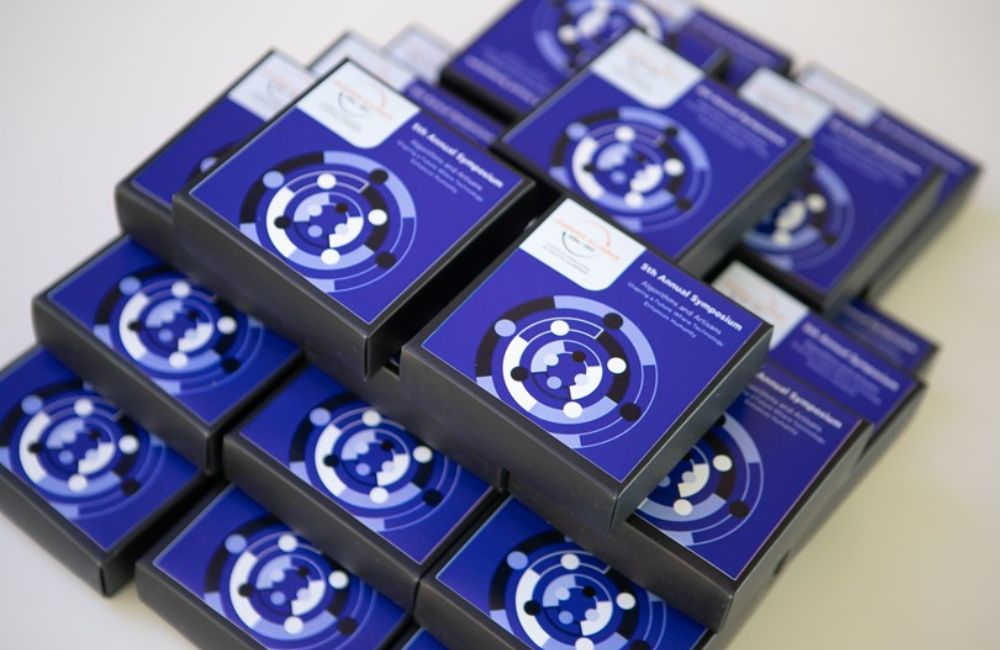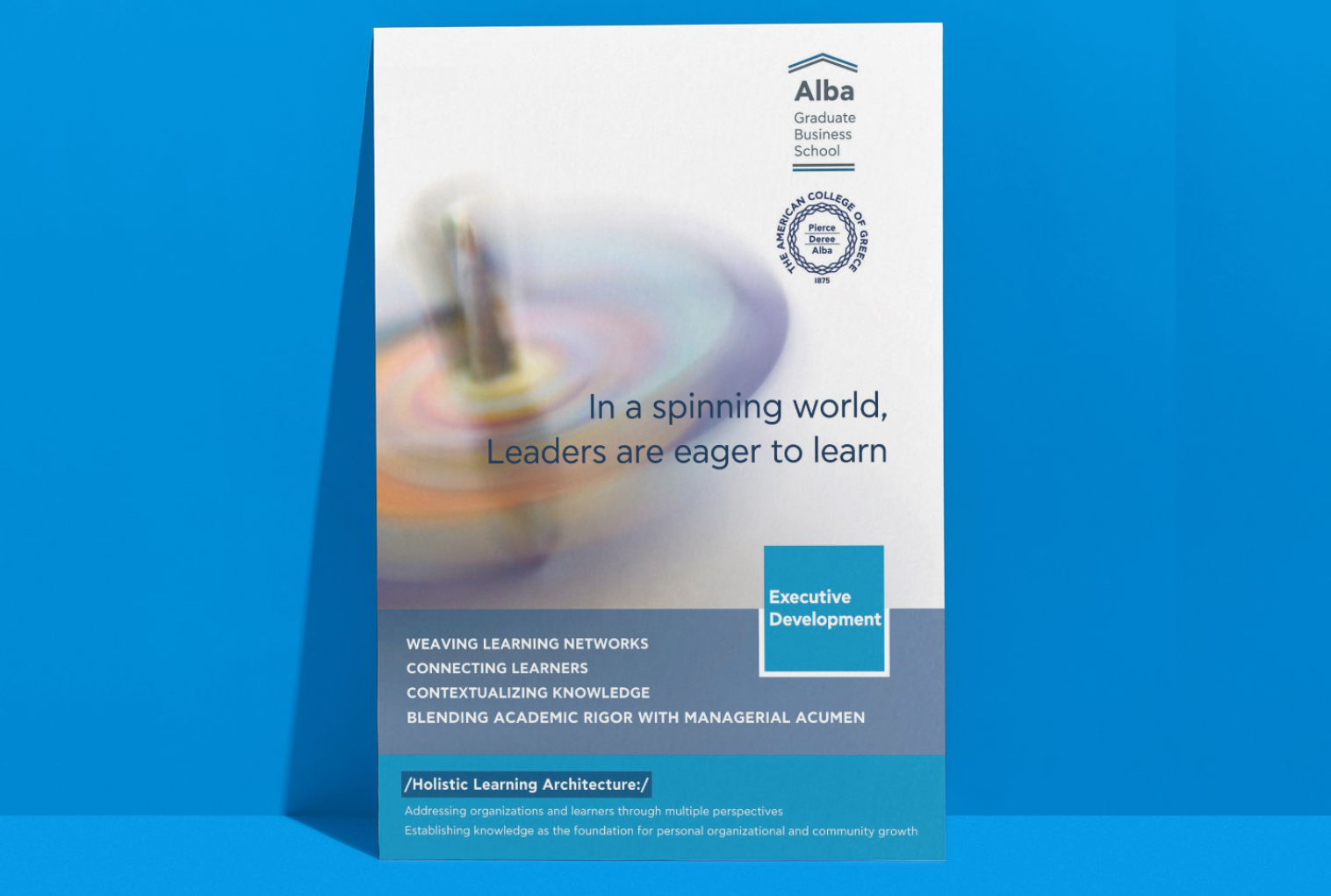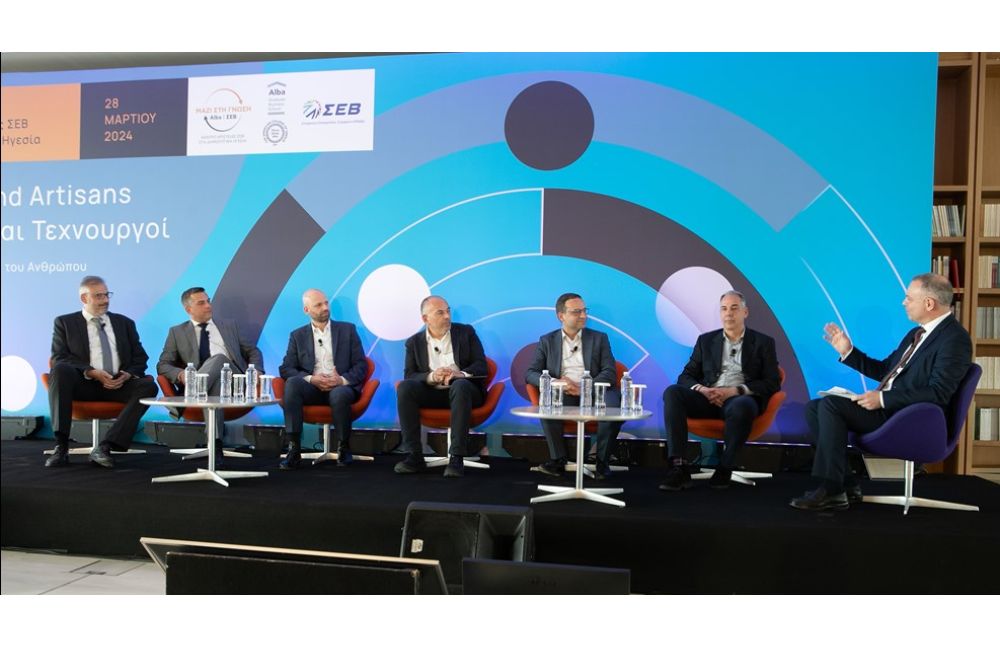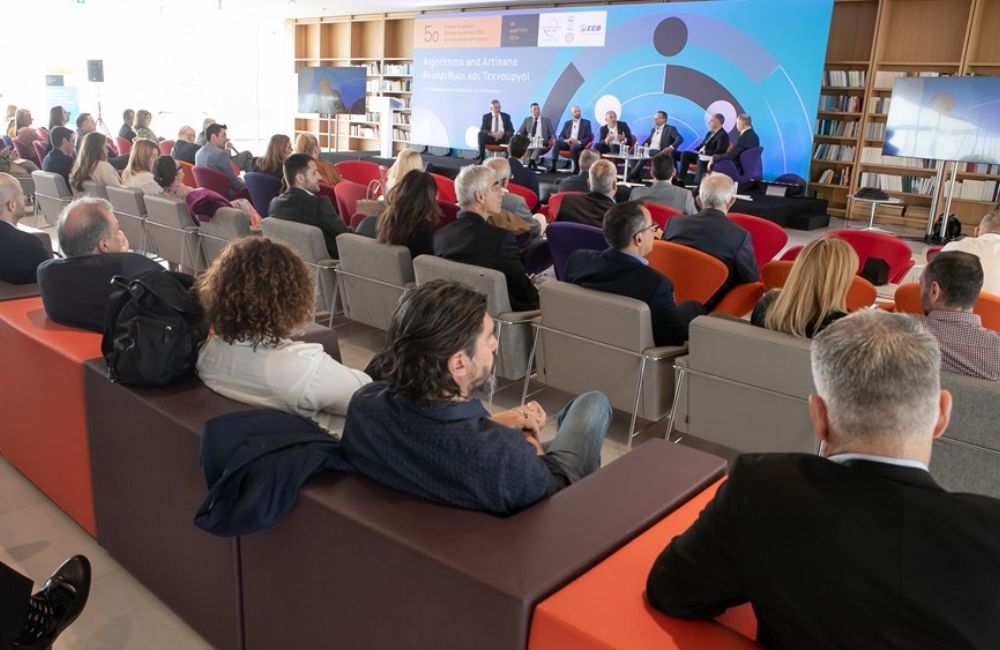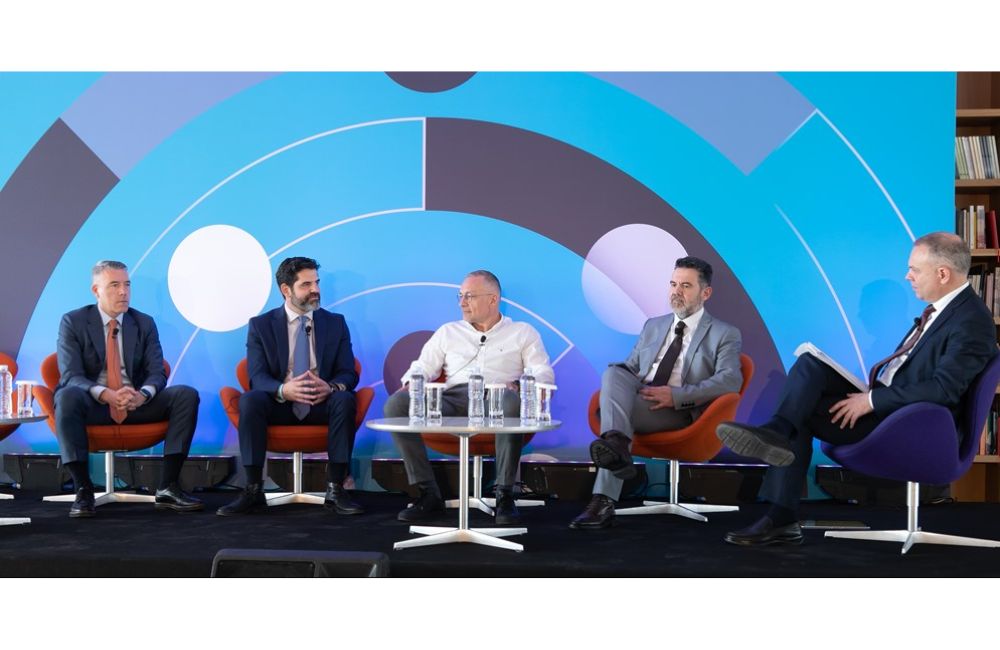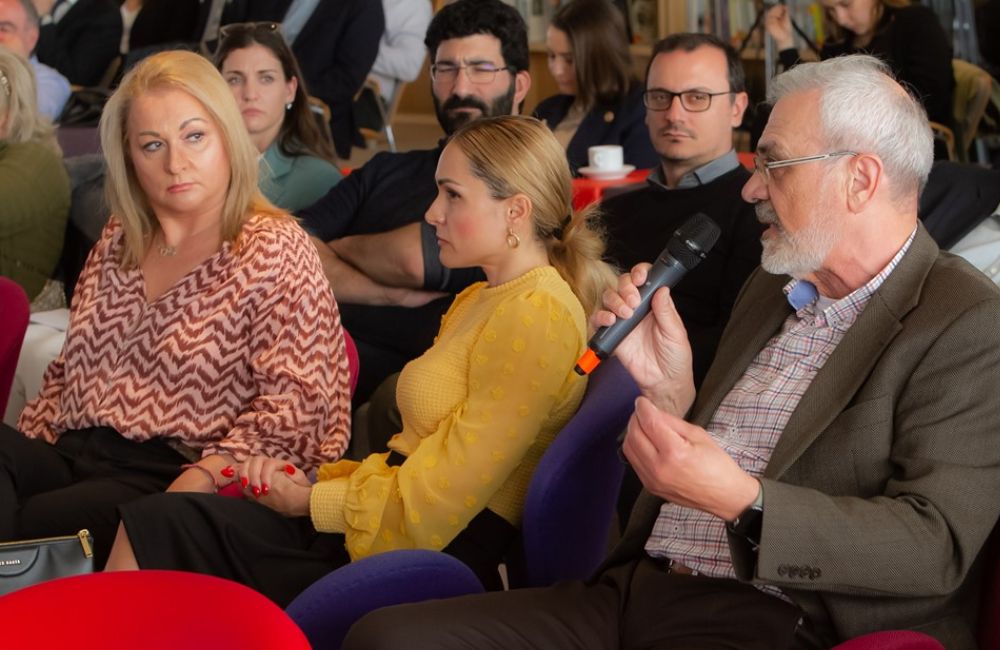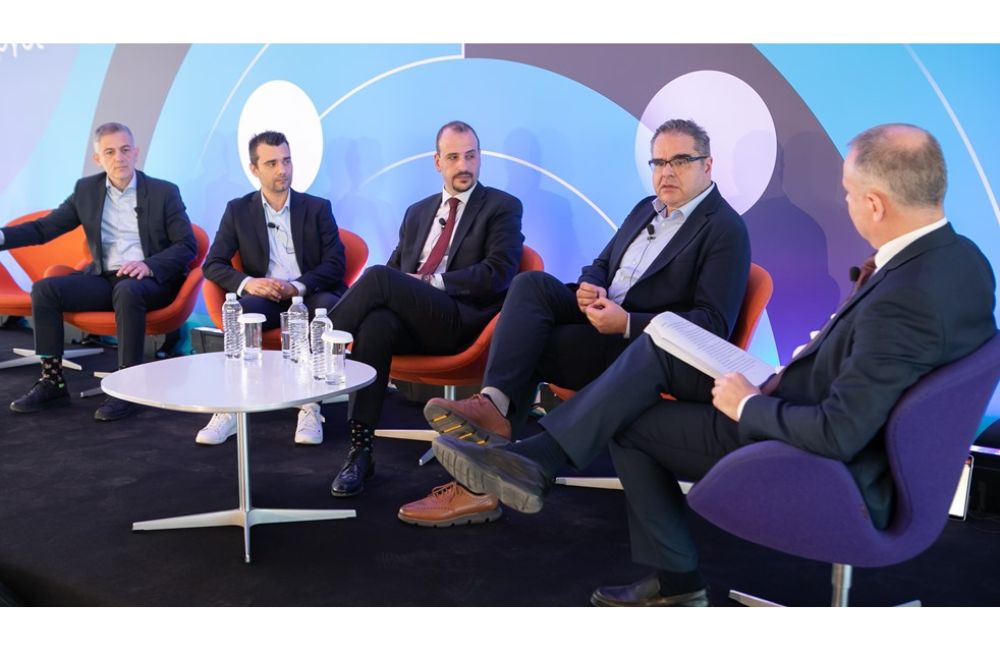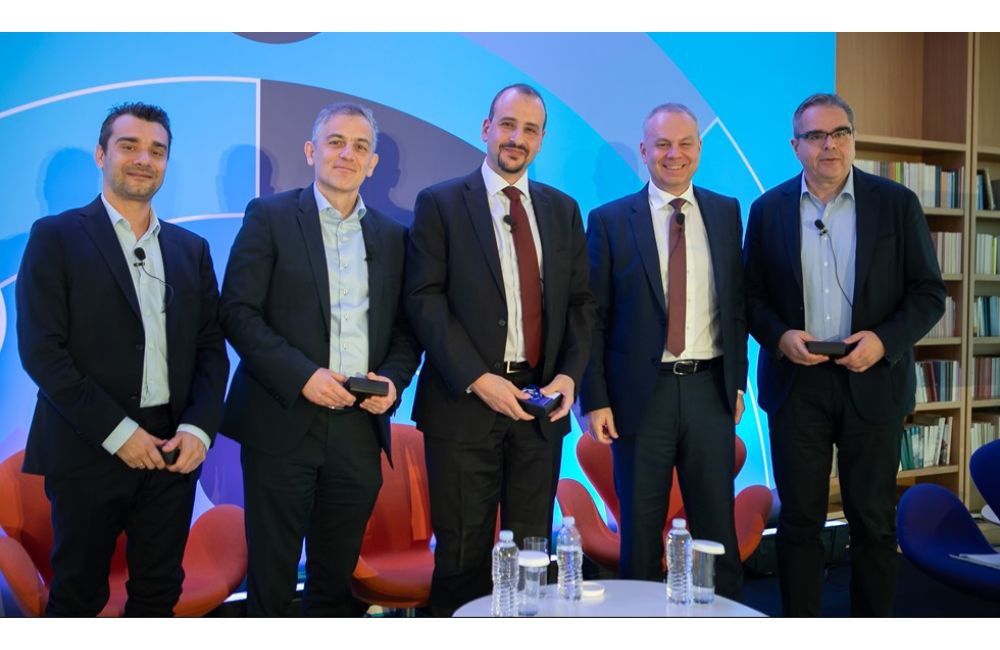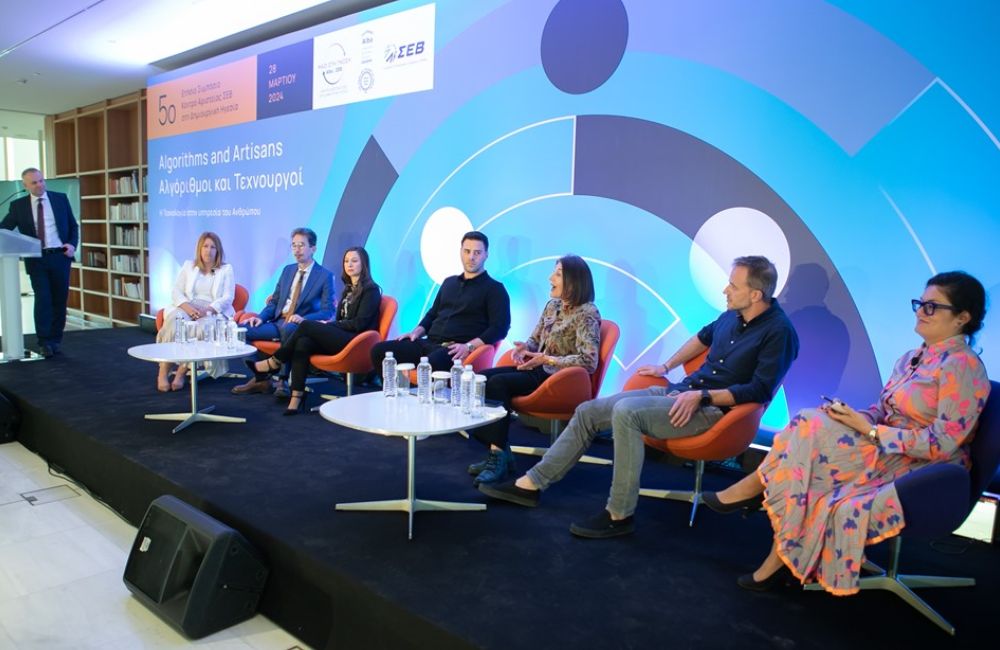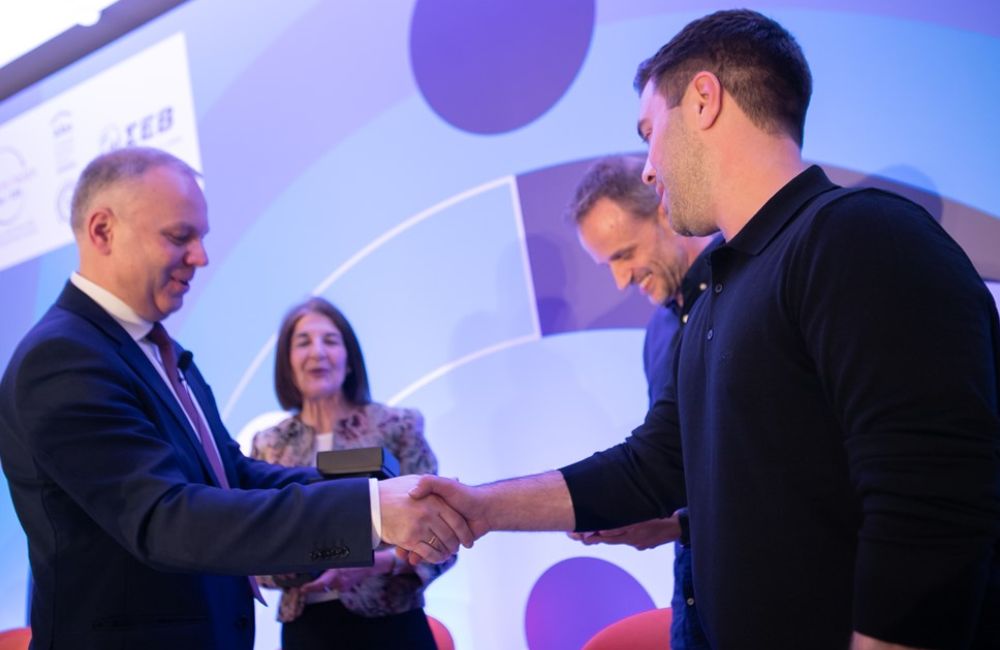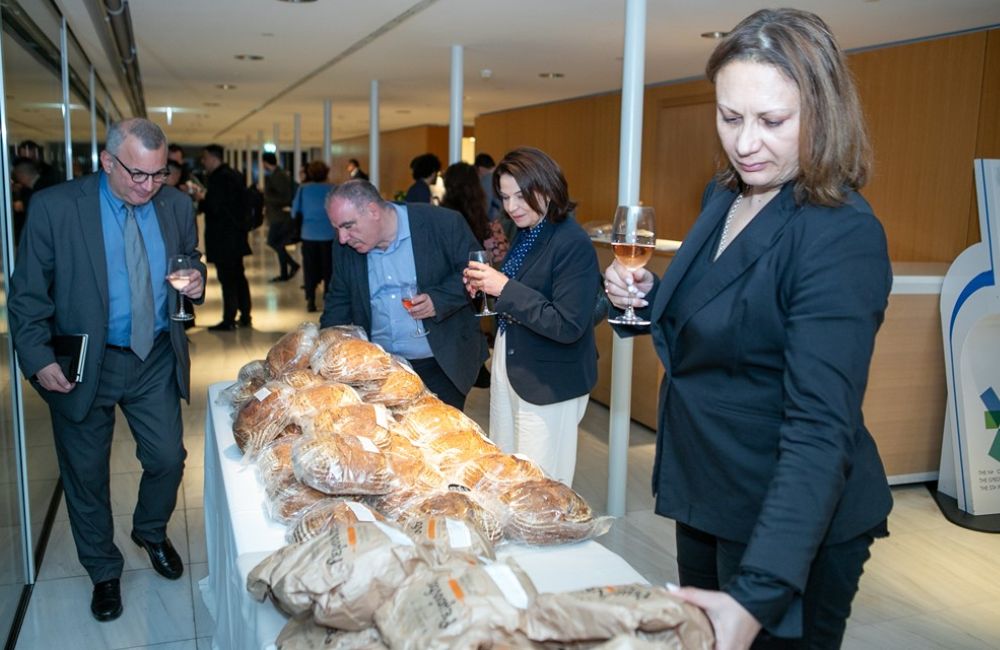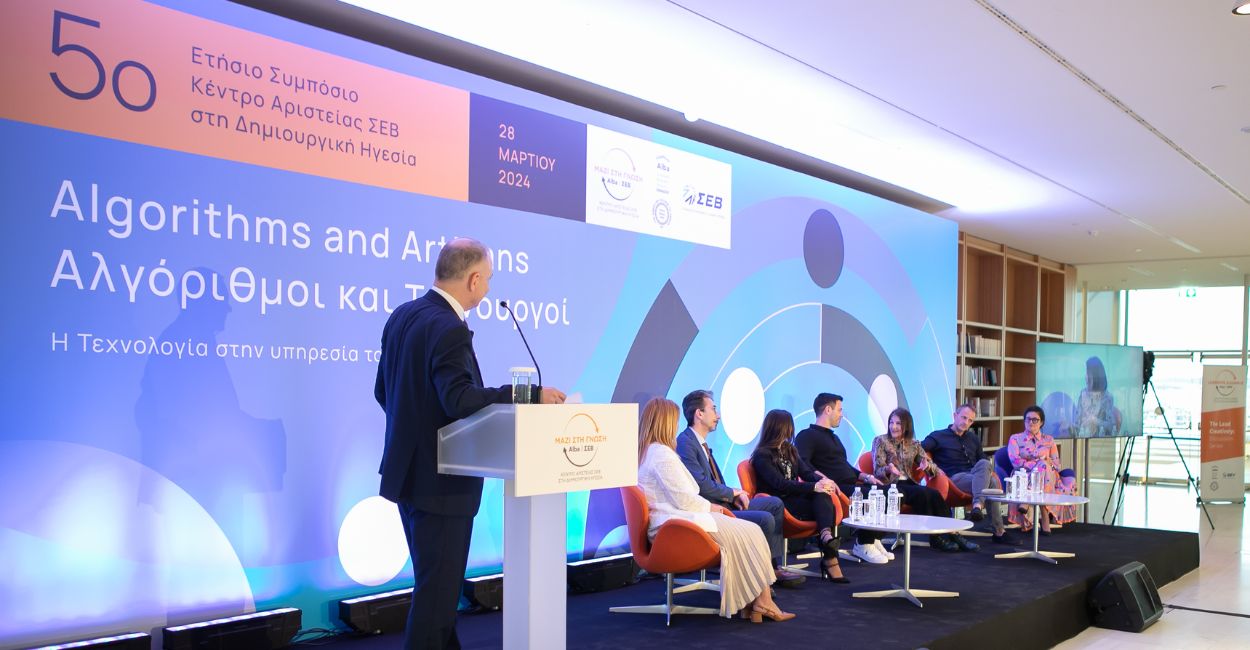
In the wake of technology’s relentless march towards automation, the 5th SEV Center of Excellence in Creative Leadership Symposium, broadcast live from the Stavros Niarchos Foundation Cultural Center Lighthouse on March 28, tackled a pressing dilemma: How can leaders find ways to organize work that reinforces human aspirations, imbues it with purpose, and upholds our values? After all, leaders lead humans, not algorithms.
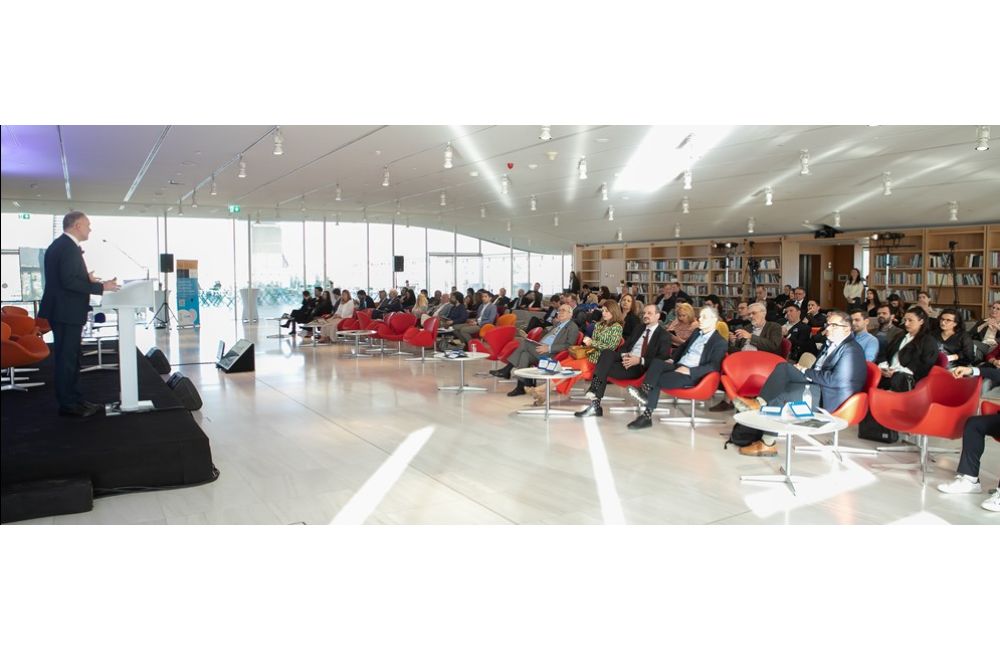
Under the theme “Algorithms and Artisans – Shaping a Future Where Technology Enhances Humanity,” distinguished researchers, and industry leaders gathered in four panels to discuss themes ranging from navigating leadership amidst artificial intelligence disruptions, innovating healthcare outcomes through AI, exploring the intricacies of agile transformation and rebuilding human connections in the digital era.
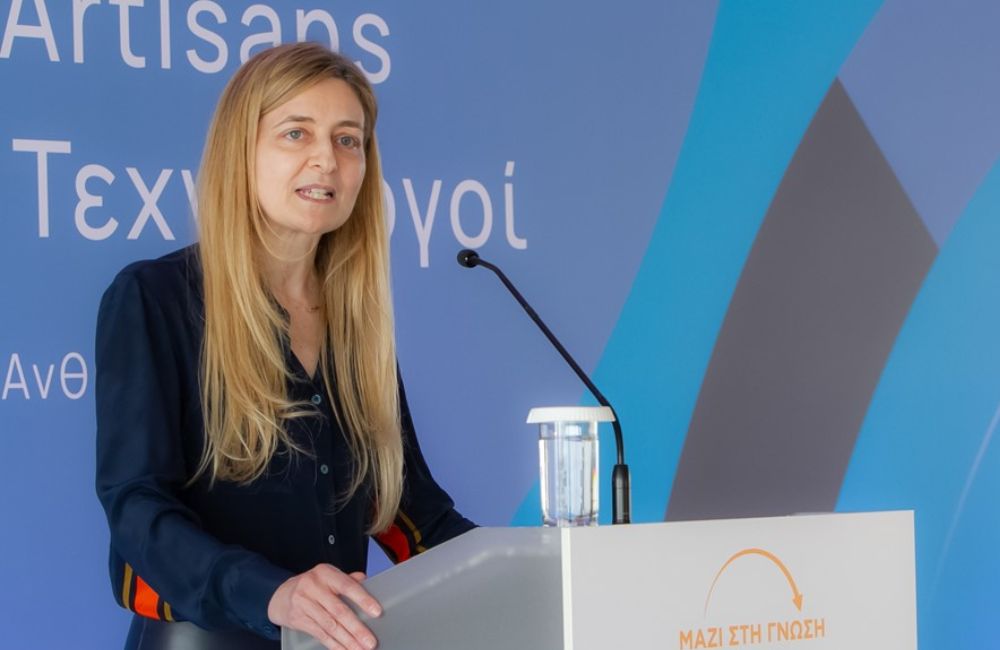
The symposium opened with welcome remarks from George Xirogiannis, Director General at SEV, who highlighted the significance of artificial intelligence in the perceptions of the general public: "We now clearly see the way AI is shaping our present. It already offers solutions to automate processes, improve human resource efficiency, forecast demand, reduce costs. We see machines with the ability to make decisions, autonomous drones, mobile applications with speech recognition.
At SEV we believe in the opportunities that artificial intelligence creates for the entire economy. We actively support businesses on their digital journey, documenting proposals through the Digital Transformation Observatory. We promote the development of cooperation between companies, Universities, research centers and start ups to strengthen the adoption of artificial intelligence. In any business transformation journey, the role of leadership is pivotal which is why we are partnering with Alba via the Learning Alliance initiative to create today the executives that businesses will need in their technology transition"
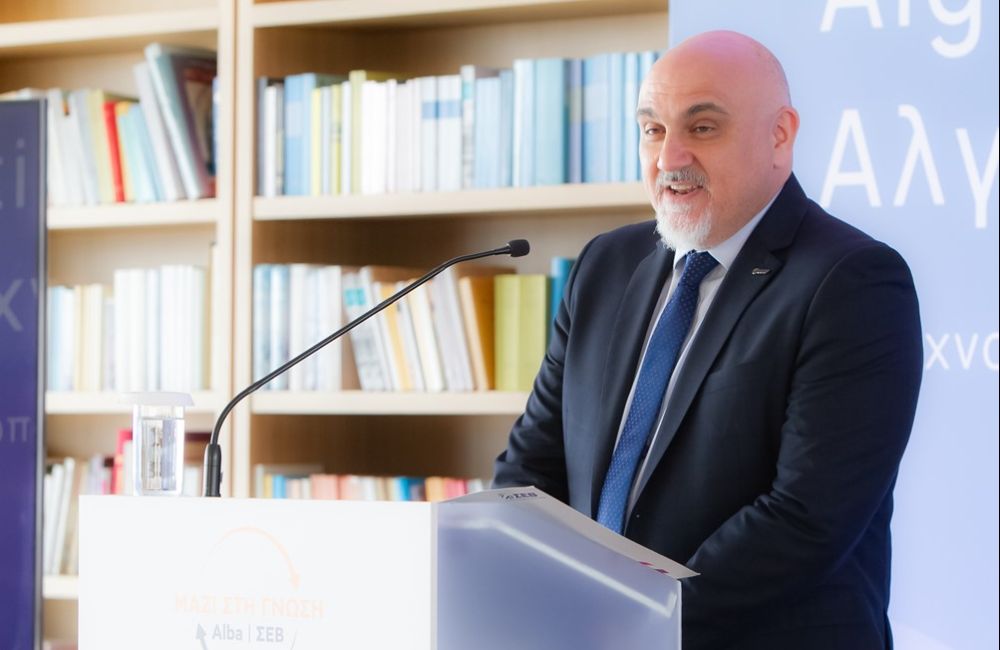
Next on the podium was Stelios Argyros, Chairman of the ALBA Board of Directors, who gave a short, enlightening presentation on the evolution of the word algorithm: “Over the years, the definition of an algorithm has evolved, growing increasingly intricate and multifaceted as technology advances and our understanding deepens. What once was a straightforward set of instructions has transformed into a complex framework, reflecting the expanding capabilities and applications of computational systems.”
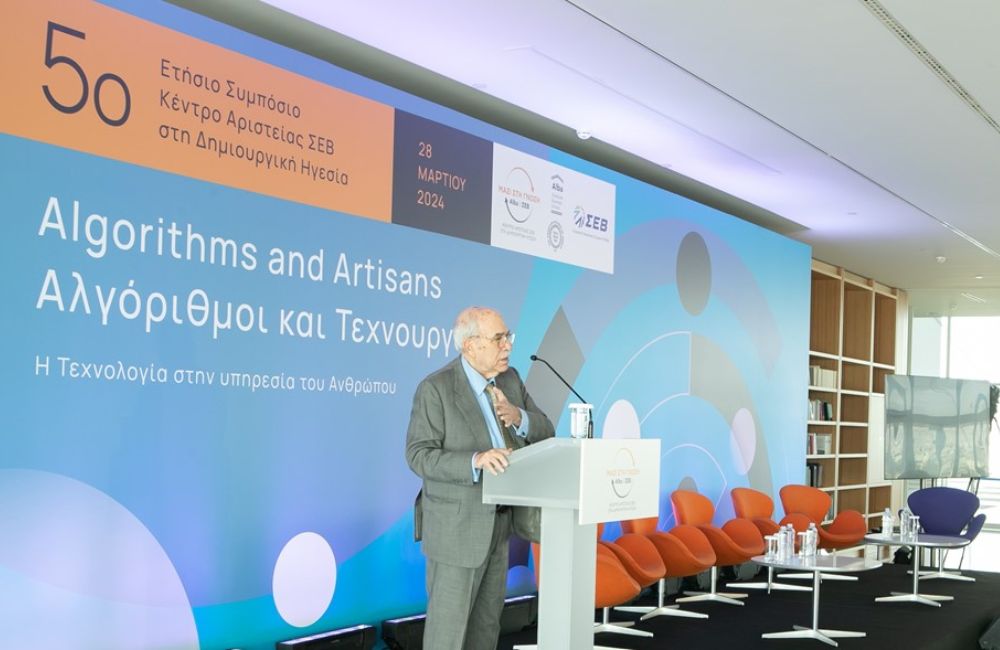
Kostas Axarloglou, Dean and Professor of International Business and Strategy, opened the symposium when he stated: “In the ever-evolving landscape of artificial intelligence, we find ourselves at a pivotal juncture marked by the emergence of Gen AI. This technology has not only reshaped our world fundamentally but continues to shape our future in unprecedented ways. As we gather at this significant conference dedicated to the exploration of AI, it's with great pleasure and honor that I welcome you.”
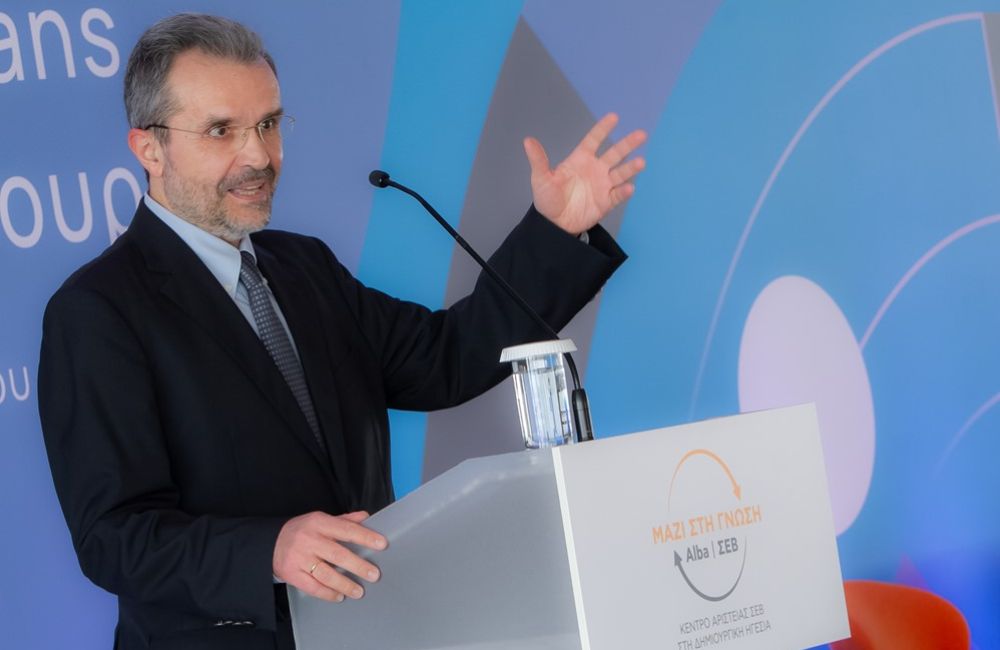
In his remarks, Nikos Mylonopoulos, Director of the SEV Center of Excellence in Creative Leadership, Professor of Digital Business at Alba and event moderator, reflected on the title of this year’s symposium: “Amidst uncertainty, the integration of technology prompts introspection: What role do we, as humans, aspire to play? We draw inspiration from the work of craft artisans to emphasize the value of relationships that cannot be replaced or even mediated by technology.”
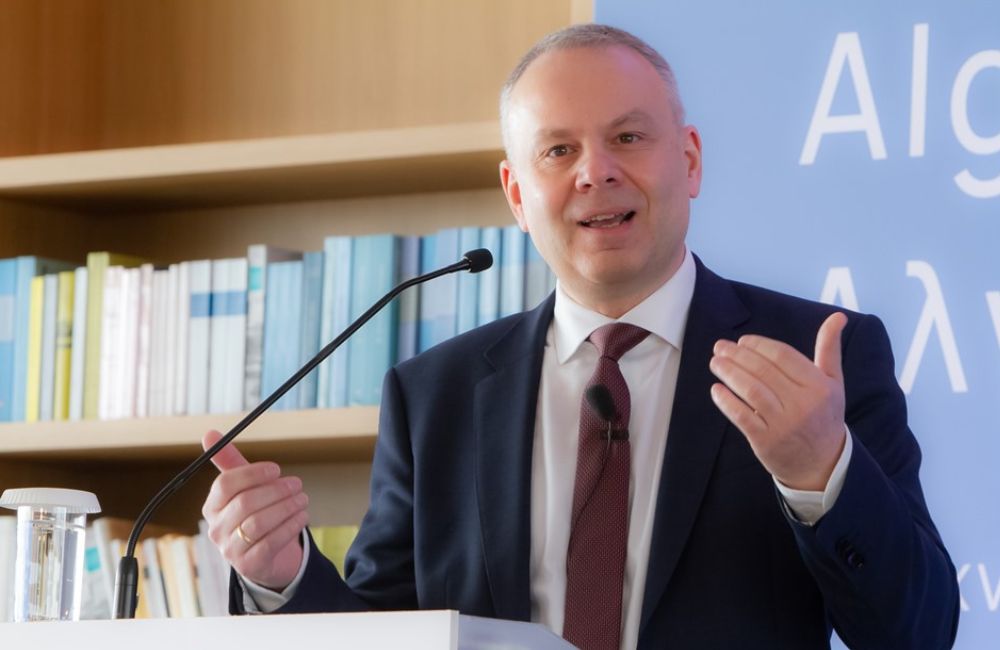
In the vast expanse of our modern age, where the steady march of technology echoes through every industry, a profound question lingers in the air like a whispered prophecy: What is the role of humans if technology can emulate and simulate every human ability? As the gears of progress turn, leaders find themselves standing at the crossroads of innovation and tradition, grappling with a formidable challenge: to navigate the shifting landscape of work in a way that honors human potential. In a world where algorithms dictate efficiency, do leaders hold the key to preserving the essence of humanity in the workplace? With these considerations at the forefront, the panel discussions explored the nuanced approaches taken by leaders as they address the multifaceted challenges arising from the integration of artificial intelligence (AI) into various aspects of human life, health and dynamics of the workforce.
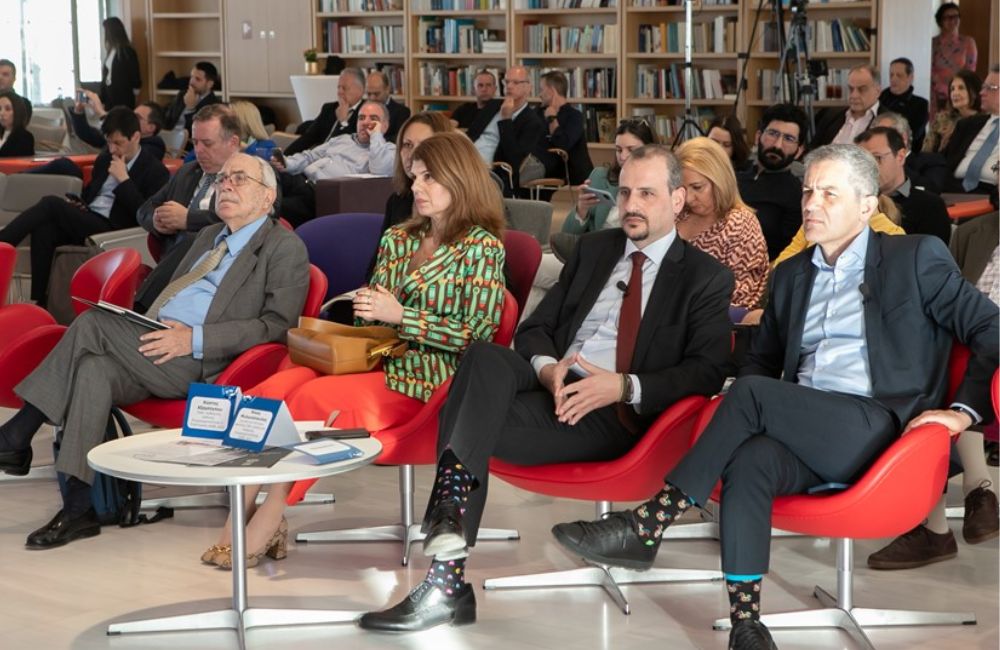
The theme of the first panel discussion was “Beyond Automation: Leading Through the AI Disruption”, and it focused on the transformative impact of artificial intelligence (AI) on work organization, operating models, and strategy. The panelists, Nikos Anastopoulos, Field Sales Executive Enterprise, Google Cloud, George Konstantelos, Digital Transformation Manager, HELLENiQ ENERGY, Panagiotis Margaris, Supply Chain Digitization Director & PMO of Group Digital Center of Competence, Titan, George Marinos, Assistant General Manager Innovation & Digital Partnerships, National Bank of Greece, Pantelis Xanthoulis, Senior Account Executive, Microsoft and Yiannis Papidis, Chief Technology & Business Change Officer, Dixons SouthEast Europe, highlighted the need for leaders to navigate challenges and opportunities responsibly amidst emerging ethical dilemmas.
The participants agreed that in the era of GenAI, organizations are swiftly embracing advanced technologies to enhance productivity.Therefore, technology not only shapes new use cases but also informs human decision-making, necessitating a paradigm shift in roles and opportunities. Human creativity now becomes paramount as we synthesize diverse inputs to drive innovation and yield meaningful outcomes.
The second panel discussion, entitled “Data-driven Healthcare: Innovation with Artificial Intelligence for Better Outcomes,” brought together the following leaders in healthcare: Panos Bassios, Digital, Data & Analytics Director, MSD Greece, Cyprus & Malta, Kostas Georgiou, Head of Consulting and Primary Market Research, IQVIA, Giorgos Kapetanakis, President of the Hellenic Cancer Federation – ELLOK and Angelos Baxevanis, Head of Strategy & Partnerships, Europe, Amarin Pharmaceutical.
They delved into the crucial intersection of healthcare and artificial intelligence, emphasizing the pivotal role of data in improving patient outcomes through advancements in diagnosis, treatment, and clinical decision-making while also underscoring the importance of ethical data practices and patient-centric approaches in leveraging AI technologies. The panelists concluded that despite the vast amount of data available (almost 2.5 quintillion bytes of data), only a small fraction (1%) is currently utilized, highlighting a significant untapped potential. In healthcare, technology, particularly AI, will play a pivotal role across the patient journey, aiding in prognosis, therapy, and post-care. AI applications, ranging from therapy assistance to prognosis models and diagnoses, promise to alleviate doctor burnout, enhance hospital efficiency, and foster closer doctor-patient relationships. Ultimately, while AI tools provide comprehensive clinical insights, human judgment remains paramount in making final medical decisions, with AI serving as a valuable complement to healthcare professionals.
The third panel, “The Art of Never Settling: A Case Study of Interamerican’s Agile Transformation,” focused on the company’s adaptive journey, highlighting its agile transformation to meet evolving market demands through organizational restructuring, innovative career pathways, and a governance framework, leading to enhanced employee commitment, customer satisfaction, and project success, while prompting reflection on future challenges and cross-company learning opportunities. The panelists were Panos Kouvalis, Chief Operating Officer and Member of the BoD, Interamerican, Konstantinos Bozis, Product Manager, OTS, Tasos Ioakeim, Head of Group CIO Office, Eurobank and Yannis Vitzilaios, Customer Systems Director, OTE Group.
Their discussion revealed the surprising effects of agile transformation on team productivity as well as employee engagement, ownership and well-being. In their opinion, the role of leaders is to cultivate a culture and instil values that empower individuals to adapt swiftly and take ownership, fostering productivity. Embedding adaptation and agility into the organizational ethos is essential to align with customer needs effectively. It necessitates equipping management with agile roles and fostering a mindset conducive to change. In addition, achieving full alignment requires ongoing adaptation and concerted efforts to reshape company culture, values, and behaviors. Teams should be encouraged to foster open communication, recognizing the significance of feedback loops in enhancing productivity and embracing a dual career path approach to maximize talent utilization. The following quote by Yiannis Kantoros, CEO of Interamerican, summarized the striving for continuous learning and improvement: “The perfect company exists only in the books we read.”
The final panel, entitled “Breaking Bread: Reconnecting in the Digital Age,” delved into the symbolism of bread as it pertains to authentic human connections, transcending its culinary significance to explore its role in inspiring innovation and fostering human bonds in the digital era.
The panelists, Pericles Vourthis, Slow fermentation visionary BREAD B.C., Lina Griaggelou, Museum Educator, Loulis Museum, Dimitris Dritsas, Baker Chef, Georgia Kakourou-Chroni, Curator of the National Gallery of Greece, Georgia Kotretsos, Visual Artist|Founder of The ΤΕΛΟΣ SOCIETY, Arts & Culture Research Lab Observatorium | Associate Lecturer, Frances Rich School of Fine and Performing Arts, Deree - The American College of Greece, Nikolas Paraskevas, Technical Department Manager, Thrace Mills and Maria Sabatakaki, Historian & Founder Historistai - Public History Network & Productions, dived into a lively discussion on the importance of bread in Greek culture, history and economy. In an era dominated by virtual realities, the humble yet profound and timeless bread serves as a reminder of authentic connections. It symbolizes the relationship of people around the table, of individuals with their food, of the farmer with the land, and of the baker with the artistry involved. It is an exploration of how the most iconic form of sustenance throughout history continues to evolve, inspire, and connect us in an increasingly digital world. It is also a call to make conscious choices about what we entrust to algorithms and what reconnects us with human nature.
For more insights from the 5th SEV Center of Excellence in Creative Leadership Symposium, you can watch it in its entirety (in Greek) here.
You may also download the Symposium Booklet (in Greek) here.
The symposium's logo, a circle containing smaller circles, can be viewed on two levels. On one hand, it represents a network of interconnected elements, symbolizing the intelligent algorithms that are shaping our world. On another level, when seen as people holding hands in a circle, it depicts the strong bonds of human community. This duality perfectly captures the symposium's theme: "Algorithms and Artisans: Building a Future Where Technology Augments Humanity." It suggests a vision where powerful technologies work in synergy with the creativity, collaboration, and connection that define the human experience.
